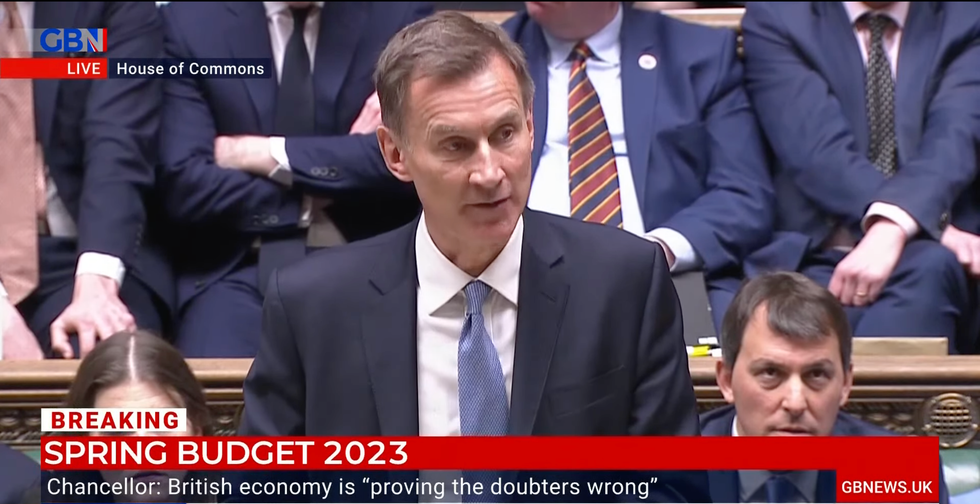Jeremy Hunt confirmed National Insurance and capital gains tax would be cut later this year but experts are questioning how beneficial this will be for low-income households
Don't Miss
Most Read
Trending on GB News
The wealthiest households will be hundreds of pounds better-off than the poorest families because of Jeremy Hunt’s Spring Budget tax cuts, according to new analysis.
Research carried out by the New Economics Foundation (NEF) claims the tax cuts in the Chancellor’s Spring Budget will “help the richest the most”.
Wealthier households will receive an extra £930 per year more than the poorest, analysis found.
Mr Hunt announced a cut to the capital gains tax rate on property, an increase to the High Income Child Benefit tax Charge (HICBC) thresholds and an overhaul of non-dom tax rules during the Budget.
Furthermore, he confirmed that National Insurance rate would be slashed for the second time this year from April.
The levy’s rate will be cut from 10 per cent to eight per cent for employees and to six per cent for the self-employed.
Do you have a money story you’d like to share? Get in touch by emailing money@gbnews.uk.

Research suggests Hunt's tax cuts will benefit the richest households the most
GETTY
However, researchers from the NEF found that these changes will leave the richest 20 per cent of households £1,010 better-off per year.
In comparison, the poorest families in the country will receive only £80 more a year.
As a result, low-income households will receive just three per cent of the cuts to National Insurance and reforms to Child Benefit tax rules, while high income families will benefit from 37 per cent of the tax cuts.
Experts are warning the Budget will likely not have a positive impact on those who are already struggling with the cost of living.
Some 25 million people will be unable to afford an acceptable standard of living by April of this year, according to the NEF.
This is referred to as the minimum income standard (MIS) with the number of Britons unable to reach this amount rising by five million from April 2019.
Hannah Peaker, the director of policy at NEF, slammed the Chancellor for rolling back on his promise to make the tax system fairer.
During the Budget, Mr Hunt said he believed “those with the broadest shoulders should pay their fair share”.
She said: “The Chancellor spoke about making our tax system fairer, yet our analysis shows he is doing the opposite.
“The measures announced will not only help the richest the most, but they will have to be paid for through further cuts to public services, which disproportionately impacts those on the lowest incomes.
LATEST DEVELOPMENTS:
 Chancellor Jeremy Hunt delivered The Budget in the House of CommonsGB News
Chancellor Jeremy Hunt delivered The Budget in the House of CommonsGB News“The public do not want tax cuts, they want to be able to have access to good schools, reliable public transport and affordable housing. They want a way out of the cost of living crisis.
“If the Government was serious about our future prosperity it would look to change the current fiscal rules, which are not a good measure of safe levels of government borrowing.
“This would then allow it to borrow sensibly to invest in the things that improve peoples’ lives, including public services and green industries to get wages rising across the country.”
GB News has contacted the Treasury for comment.









